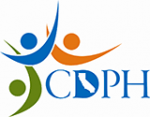Overview
Position Overview
The Illinois Department of Public Health is seeking an individual to under direction, perform
specialized paraprofessional and support functions involving the application of advanced technical
knowledge of Database software application programs. Types a variety of information from diverse
sources. Performs a variety of other complex functions using personal computers. Coordinator for
travel vouchers and serves as Long Term Care Receptionist in Region 1.
Essential Functions
Supports the Regional Office by performing complex office support functions.
Reviews survey documents for completion of accuracy.
Assists with answering telephones and emails.
Serves as backup Information Technology (IT) Coordinator for Long Term Care (LTC) Field
Operations Survey Staff.
Assists in enforcement proceedings.
Maintains, prepares and distributes required survey packets for all types of survey activity.
Performs other duties as required or assigned which are reasonably within the scope of the
duties enumerated above.
Minimum Qualifications
Requires knowledge, skill and mental development equivalent to two years of
secretarial/business college or completion of high school and two years related office experience
or two years of independent business experience.
Requires the ability to keyboard accurately at 30 words per minute
About Illinois Department of Public Health
In Illinois, if you have eaten at a restaurant ... required hospital or nursing home care ... vacationed at a campground or swam at a public beach or pool ... drank a glass of milk ... got married or divorced ... had a baby, the Illinois Department of Public Health (IDPH) has touched your life in some important way.
Assuring the quality of our food, setting the standards for hospital and nursing home care, checking the safety of recreation areas, overseeing the inspection of milk producing farms and processing plants, maintaining the state's vital records and screening newborns for genetic diseases are just some of the duties of IDPH.
In fact, IDPH has 200 different programs that benefit each state resident and visitor, although its daily activities of maintaining the public's health are rarely noticed unless a breakdown in the system occurs. With the assistance of local public health agencies, these essential programs and services make up Illinois' public health system, a system that forms a frontline defense against disease through preventive measures and education. Public health has provided the foundation for remarkable gains in saving lives and reducing suffering. Today, life expectancy is 80 years for women and 74 years for men compared with fewer than 50 years at the at the beginning of the 20th century.
In the past, IDPH directed state efforts to control smallpox, cholera and typhoid, virtually eliminated polio, reduced dental decay through fluoridation of community water supplies, and corrected sanitary conditions that threatened water and food supplies.
Today, IDPH has programs to deal with persistent problems that require continued vigilance – infectious diseases, such as AIDS (acquired immunodeficiency syndrome), HIV (human immunodeficiency virus), SARS (severe acute respiratory syndrome) and meningococcal disease; foodborne and communicable diseases, such as E. coli 0157: H7, monkeypox, salmonella and West Nile virus; vaccine preventable diseases; lead poisoning; lack of health care in rural areas; health disparities among racial groups, breast, cervical and prostate cancer; Alzheimer's disease; and other health threats -- sexually transmitted diseases, tobacco use, violence, and other conditions associated with high-risk behaviors. In addition, IDPH has been charged with handling the state's response to the COVID-19 pandemic and the threat of bioterrorism.
IDPH, which is one of the state's oldest agencies, was first organized in 1877 with a staff of three and a two-year budget of $5,000. IDPH, now has an annual budget of $2.9 billion in state and federal funds, headquarters in Springfield and Chicago, seven regional offices located around the state, three laboratories, and 1,200 employees.
IDPH is organized into 12 offices, each of which addresses a distinct area of public health. Each office operates and supports numerous ongoing programs and is prepared to respond to extraordinary situations as they arise.


